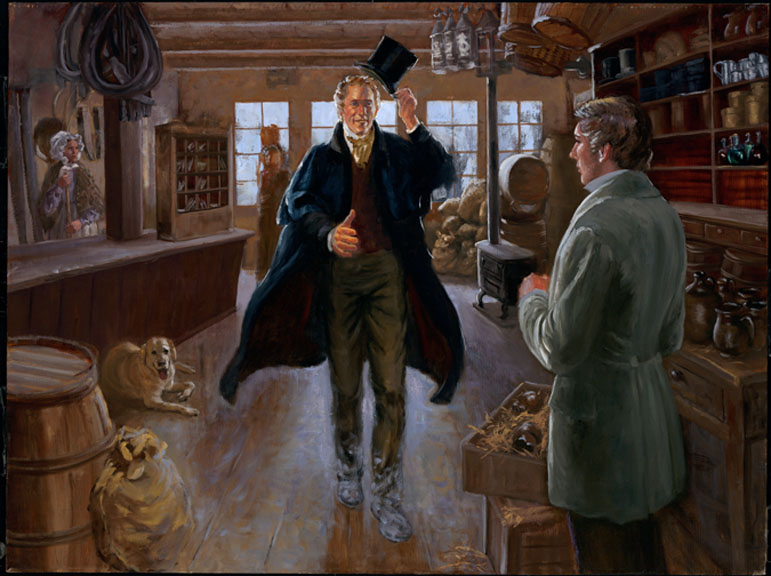To accompany your Come Follow Me study for April 28-May 4
In addition to reading these four sections, you will also want to:
- Read Saints 1:114-19 at https://www.churchofjesuschrist.org/study/history/saints-v1/11-ye-shall-receive-my-law?lang=eng or in your Gospel Library app.
- Read “The Law,” Revelations in Context, 93-95 at https://www.churchofjesuschrist.org/study/manual/revelations-in-context/the-law.2-11?lang=eng#p2#2 or in your Gospel Library app.
- Read Chapter 15: Doctrine and Covenants 37–38; 41 (churchofjesuschrist.org)
- Read Chapter 16: Doctrine and Covenants 42 (churchofjesuschrist.org)
- Read Chapter 17: Doctrine and Covenants 43–45 (churchofjesuschrist.org)
- Read ‘A Bishop unto the Church’ (churchofjesuschrist.org)
- Read ‘I Quit Other Business’: Early Missionaries (churchofjesuschrist.org)
- Read Joseph Smith’s Revelations, Doctrine and Covenants 41 (churchofjesuschrist.org)
- Read Joseph Smith’s Revelations, Doctrine and Covenants 42 (churchofjesuschrist.org)
- Read Joseph Smith’s Revelations, Doctrine and Covenants 43 (churchofjesuschrist.org)
- Read Joseph Smith’s Revelations, Doctrine and Covenants 44 (churchofjesuschrist.org)
- See the following videos:
If you would like a Kahoot game on this material to use with your family or class, click the following link: https://create.kahoot.it/share/doctrine-and-covenants-41-44/a5dfeb77-a9df-4954-922b-70f3309a7377. To use it with a group, after clicking on this link, you will need to log into Kahoot, creating a free account if you have not done so previously, then click on the blue “Host Live” button or the gray “Assign” button, depending on how you wish to use the Kahoot. Some of the Kahoot questions may presuppose that the player has read through the suggested answers to the following Points to Ponder and at least has browsed the Institute student manual as well.
Points to Ponder in Doctrine and Covenants 41-44
1. How did the law of consecration as revealed in section 42 differ from the program of “the Family” which Isaac Morley and others were practicing in Kirtland prior to their joining the Church of Jesus Christ of Latter-day Saints?

2. In what important respects did the law of consecration differ from Communism?
3. In what sense are we expected to continue to live the law of consecration today?
4. How do you reconcile D&C 42:18, which speaks of murder as unforgivable, with Alma 24:10, in which the Lamanite king expresses gratitude for having been forgiven of many murders?

5. Why would 42:88 suggest that it is the offended person, not the offender, who should take the initiative to seek reconciliation?

6. In view of 42:14, what should you do if you are a Primary teacher and just don’t feel the Spirit at the time the class is to begin? Release a bunch of five and six year olds to run through the halls? Lock the door so they can’t escape but tell them you won’t be teaching them that day? Rush out to find the Primary president and tell her the class is hers? Go ahead and fake it and hope your students won’t know you weren’t inspired that day? Explain.
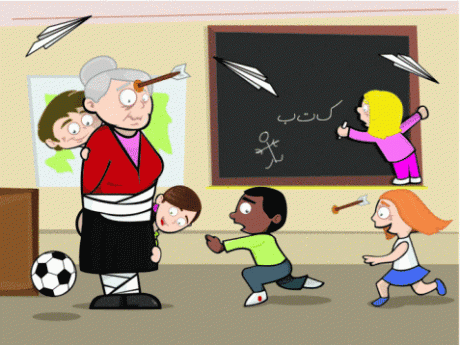
7. If we have confidence in a glorious future resurrection, why does the Lord tell us we should weep when someone dies rather than rejoice? (42:45)
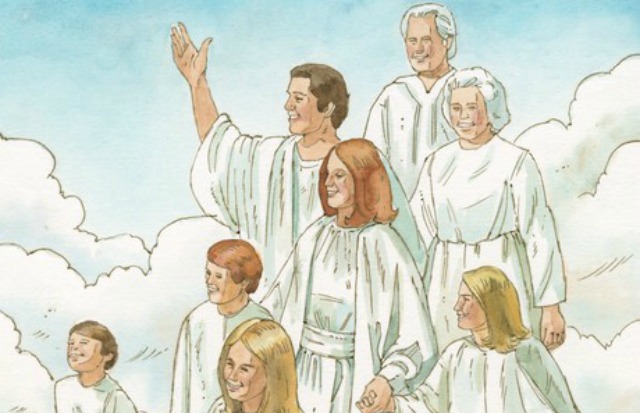
8. How can one “die,” yet not “taste of death”? (42:46) Isn’t that a contradiction in terms? Is it supposed to mean that the righteous won’t die a painful death? Is your answer supported by the evidence?
9. If we give a priesthood blessing to someone with COVID and they die anyway, what can we conclude about that person?

10. What do you consider the points in 43:8 concerning Church meetings that you think need the greatest emphasis?
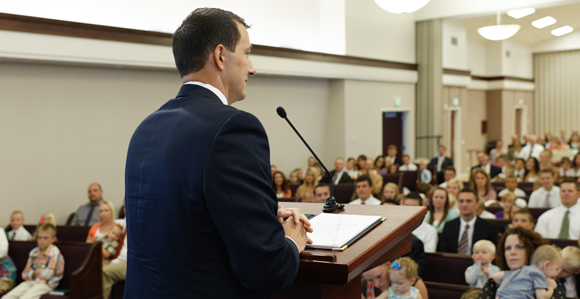
Which passage teaches or implies each of the following points?
11. Latter-day Saints can rise higher or fall lower than anyone.
12. The first presiding bishop had a simple and pure heart like one of Jesus’ apostles.
13. How to react to someone who claims he was ordained to be head of the Church by someone (now deceased) who had been ordained by someone else who had been ordained by still an earlier person, who had been so ordained secretly by Joseph Smith just before the Prophet’s death, with no one else present?
14. One cannot watch suggestive movies and retain the influence of the Holy Ghost.
15. The Lord is not pleased with those who want to wear fancier and more expensive clothes than their friends.
16. It is a divine commandment not to let your house (or room) get too dirty.
17. We have a divine obligation to help see that lawbreakers are brought to justice.
18. Public confession of private transgressions is not required. Transgressors need confess only to those they have offended, and to the Lord.
19. Good counsel for a young man or woman who wants to go on a mission primarily to learn a new language, get acquainted with a new culture, and learn leadership skills.
20. Prior to the Second Coming we may hear an audible warning voice from heaven, in addition to natural calamities, calling on earth’s inhabitants to repent.
21. One of only two passages in all of scripture which call the 1000 year period of peace following the Second Coming by its most common name.
22. We should be appropriately serious as we contemplate the future before us.
23. Conference is a time when we can expect an extra outpouring of the Lord’s Spirit, if we properly prepare ourselves.
Additional Points to Consider
24. In section 42, commonly known as “the Law,” what was the “first commandment” the Lord mentioned, even before revealing the law of consecration and other important matters of Church policy? Why do you suppose the Lord started with this “first commandment”?
25. What verse in D&C 41-44 do you personally find most inspiring and comforting?
26. What principle of conduct does the Lord emphasize twice at the conclusion of D&C 43? Why do you suppose He thought it necessary?
Possible Answers to Points to Ponder in Doctrine and Covenants 41-44
1. How did the law of consecration as revealed in section 42 differ from the program of “the Family” which Isaac Morley and others were practicing in Kirtland prior to their joining the Church of Jesus Christ of Latter-day Saints?
Morley’s “Family” considered that everything belonged to everyone and that if one wanted something which “belonged” to a neighbor, he had as much right to take it as the neighbor did to keep it. It had the effect of undermining personal agency, stewardship, and accountability and creating confusion and resentment.
The Lord’s law of consecration, on the other hand, provided for stewardships which were to be managed very much as though they were private property, with any surplus being turned over to the Church, not to whatever neighbor might want to have it.
2. In what important respects did the law of consecration differ from Communism?
To begin with, the law of consecration presupposes a group of people who have repented of their sins, who are motivated by the Spirit of the Lord and a love for others, who voluntarily consecrate their property to the Lord, through his agent, and who receive back a stewardship which they manage as though it were private property with enthusiasm and a desire to have a surplus to contribute back to the Church to help the entire community prosper. No compulsion is involved. Communism, on the other hand, relies on forced confiscation of private property and governmental management of the economy. It has made elaborate promises but has never succeeded any place in the world in raising the standard of living of those enslaved by it.

3. In what sense are we expected to continue to live the law of consecration today?
- First, we are to recognize that all we have belongs to the Lord and manage it with the primary goal of building up His kingdom.
- Second, we are to pay a full tithing and generous offerings, accept all calls to serve, including mission calls, attend the temple as often as circumstances permit, and be proactive in looking for ways to serve others with our time, talents, and means, and to build up the Church in every possible way.
- Finally, we are to develop a Christ-like love for others so we will be fit companions for those of the city of Enoch when we meet them.
- On the Church’s website at https://www.churchofjesuschrist.org/study/manual/about-the-temple-endowment?lang=eng is an article entitled “About the Temple Endowment” in which it states: “In conjunction with these ordinances, you will be invited to make specific covenants with God. These covenants include:
- Law of Obedience
- Law of Sacrifice
- Law of the Gospel
- Law of Chastity
- Law of Consecration”
So, clearly the law of consecration continues as an eternal law among Latter-day Saints, though the administration of it is different and more individualized today than it was in the early days of the Church.
For other thoughts and quotes from Church leaders, see: https://josephsmithfoundation.org/do-latter-day-saints-live-the-law-of-consecration-today/
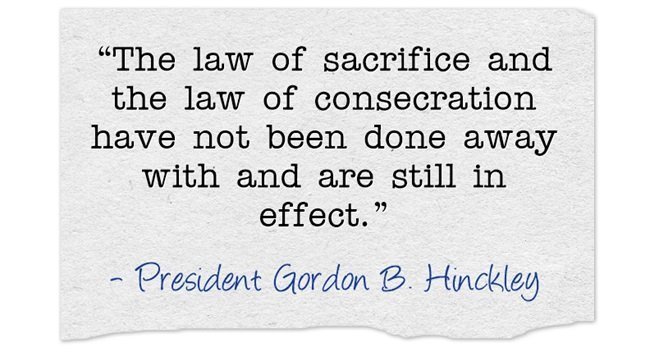
4. How do you reconcile D&C 42:18, which speaks of murder as unforgivable, with Alma 24:10, in which the Lamanite king expresses gratitude for having been forgiven of many murders?
D&C 42:18 is speaking to Church members. That which is unforgivable in one who transgresses against great light may be forgivable in one who didn’t have the same understanding. The Church does allow repentant murderers to be baptized, but it requires specific permission from the Office of the First Presidency in each case.
5. Why would 42:88 suggest that it is the offended person, not the offender, who should take the initiative to seek reconciliation?
Sometimes the offender doesn’t even realize he has offended. In other cases, the offender may feel embarrassed to take the first step. Unless someone takes the initiative, the offended individual may let the real or imagined offense fester until it becomes even worse.
6. In view of 42:14, what should you do if you are a Primary teacher and just don’t feel the Spirit at the time the class is to begin? Release a bunch of five and six year olds to run through the halls? Lock the door so they can’t escape but tell them you won’t be teaching them that day? Rush out to find the Primary president and tell her the class is hers? Go ahead and fake it and hope your students won’t know you weren’t inspired that day? Explain.
None of the above are good solutions. Two wrongs don’t make a right. The only good answer is to do the things which will bring the Spirit, or bring it back, such as repenting and praying. The emphasis here is on getting the Spirit before you teach, not on abandoning a stewardship if you don’t have the Spirit.
7. If we have confidence in a glorious future resurrection, why does the Lord tell us we should weep when someone dies rather than rejoice? (42:45)
It is only natural, and quite appropriate, according to the Lord, to weep because of our temporary loss of companionship with the deceased, even though we have full confidence that the deceased person himself is better off in the spirit world.
8. How can one “die,” yet not “taste of death”? (42:46) Isn’t that a contradiction in terms? Is it supposed to mean that the righteous won’t die a painful death? Is your answer supported by the evidence?
While physical illness or injury which leads to death may be painful, even for the righteous, death itself–the actual passing into the spirit world–will not be so, as all pain ceases at the moment of death, if one’s conscience is at peace. To “taste of death” in this sense seems to mean to feel spiritual anguish upon entering the spirit world because of wasted opportunities here.
9. If we give a priesthood blessing to someone with COVID and they die anyway, what can we conclude about that person?
According to 42:48, the person either had insufficient faith or was “appointed unto death,” meaning it was their time to go.
10. What do you consider the points in 43:8 concerning Church meetings that you think need the greatest emphasis?
Your choice. To me, it would be that meetings should be both instructive and edifying and should focus on application—“how to act and direct my church,” and “how to act upon the points of my law and commandments,” and not deal with speculative matters which make no difference in our lives.
Which passage teaches or implies each of the following points?
11. Latter-day Saints can rise higher or fall lower than anyone. [41:1]
12. The first presiding bishop had a simple and pure heart like one of Jesus’ apostles. [41:11]
13. How to react to someone who claims he was ordained to be head of the Church by someone (now deceased) who had been ordained by someone else who had been ordained by still an earlier person, who had been so ordained secretly by Joseph Smith just before the Prophet’s death, with no one else present? [42:11]
14. One cannot watch suggestive movies and retain the influence of the Holy Ghost. [42:23]
15. The Lord is not pleased with those who want to wear fancier and more expensive clothes than their friends. [42:40]
16. It is a divine commandment not to let your house (or room) get too dirty. [42:41]
17. We have a divine obligation to help see that lawbreakers are brought to justice. [42:79, 84-86]
18. Public confession of private transgressions is not required. Transgressors need confess only to those they have offended, and to the Lord. [42:92]
19. Good counsel for a young man or woman who wants to go on a mission primarily to learn a new language, get acquainted with a new culture, and learn leadership skills. [43:15]
20. Prior to the Second Coming we may hear an audible warning voice from heaven, in addition to natural calamities, calling on earth’s inhabitants to repent. [43:22-23]
21. One of only two passages in all of scripture which call the 1000 year period of peace following the Second Coming by its most common name. [43:30]
22. We should be appropriately serious as we contemplate the future before us. [43:34-35]
23. Conference is a time when we can expect an extra outpouring of the Lord’s Spirit, if we properly prepare ourselves. [44:2]
Additional Points to Consider
24. In section 42, commonly known as “the Law,” what was the “first commandment” the Lord mentioned, even before revealing the law of consecration and other important matters of Church policy? Why do you suppose the Lord started with this “first commandment”?
The Lord says “this first commandment” (42:4) was that with the exception of Joseph Smith and Sidney Rigdon, all the elders of the Church were to leave on missions. One of the reasons, of course, was simply to build up the kingdom of God on the earth and to give all an opportunity for salvation. But another, more temporal reason, was that the Church members in the Kirtland area were in general quite poor, and the successful implementation of the Law of Consecration and the building of a future temple would be greatly aided by bringing additional members of means into the fold.
25. What verse in D&C 41-44 do you personally find most inspiring and comforting?
Your choice. My answer might well be 42:61: “If thou shalt ask, thou shalt receive revelation upon revelation, knowledge upon knowledge, that thou mayest know the mysteries and peaceable things–that which bringeth joy, that which bringeth life eternal.”
26. What principle of conduct does the Lord emphasize twice at the conclusion of D&C 43? Why do you suppose He thought it necessary?
In verse 34 He says, “let the solemnities of eternity rest upon your minds.” In verse 35, He says essentially the same thing in fewer words, “Be sober.” While cheerfulness and sociability are integral to living the gospel, it is always important to remember that we are about a serious business and that excessive light-mindedness can offend the Spirit of the Lord. Joseph Smith expressed regret later in his life for being overly frivolous as a youth. Alma concluded his instruction to each of his three sons, Helaman, Shiblon, and Corianton, with a similar plea: to be sober. Finding a proper balance between jubilance and solemnity is a challenge–especially for young missionaries–but one worth pursuing.
